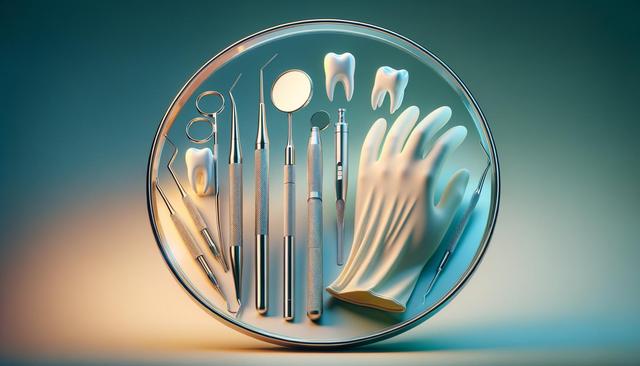Growing Demand for Preventive Dental Care
One of the key reasons more individuals are exploring dental hygiene programs is the increasing emphasis on preventive care in healthcare. As awareness grows around the importance of oral health as a component of overall wellness, dental hygienists play a central role in patient education and preventive treatments. This shift means more dental practices are expanding their hygiene departments to meet demand, creating a steady stream of job opportunities for qualified professionals. Additionally, aging populations and extended dental benefits are contributing to the surge in demand for skilled dental hygienists.
Dental hygienists are often the first point of contact during dental visits, responsible for cleaning teeth, examining for signs of oral diseases, and educating patients on good oral hygiene practices. Their role is essential in early detection of issues such as gum disease and tooth decay, which can prevent more serious health complications. This proactive approach to dental care supports the broader healthcare system by reducing the need for invasive procedures and improving overall public health outcomes.
Appealing Career Stability and Flexibility
Dental hygiene is widely viewed as a stable career with promising long-term prospects. Unlike fields that are heavily affected by economic fluctuations, healthcare-related roles tend to remain in demand. Dental hygienists benefit from consistent employment opportunities in a variety of settings, including private practices, community clinics, public health agencies, and educational institutions. This versatility allows professionals to choose environments that align with their interests and lifestyle preferences.
Flexibility is another attractive aspect of the profession. Many dental hygienists work part-time or have the option to set flexible hours, making it an appealing choice for individuals balancing work with family or other commitments. In addition, the ability to work in different geographic locations without extensive retraining offers added mobility for those who may need to relocate. These factors contribute to the growing interest in dental hygiene programs as a pathway to a career that offers both stability and adaptability.
Educational Pathways and Accessibility
Compared to other healthcare professions, becoming a dental hygienist typically requires less time and financial investment. Most programs can be completed in two to three years, culminating in an associate degree or diploma that qualifies graduates to take licensure exams. This shorter educational timeline appeals to individuals looking for a quicker entry into the workforce without the burden of long-term student debt.
Many community colleges and technical schools across the country offer accredited dental hygiene programs, increasing accessibility for students from diverse backgrounds. For those seeking further advancement, bachelor’s and master’s degrees are also available, opening up opportunities in education, research, and administration. The combination of accessible entry points and potential for career development makes dental hygiene an appealing option for both recent high school graduates and career changers.
Meaningful Work and Patient Impact
Aside from financial and logistical benefits, dental hygiene appeals to those who value making a difference in people’s lives. The profession offers daily opportunities to educate and empower patients toward better oral health habits, which can have a lasting impact on their overall well-being. This sense of contribution and personal connection is a motivating factor for many entering the field.
Dental hygienists often build long-term relationships with patients, seeing them regularly and becoming trusted sources of information and support. This continuity of care can be deeply rewarding. Professionals in this role help reduce patient anxiety, especially for those with dental phobias, by creating a welcoming and informative environment. The ability to contribute positively to individual health outcomes and community wellness is a compelling reason why more people are considering this career path.
Career Growth and Professional Development
The field of dental hygiene offers a variety of pathways for professional growth. After gaining experience, dental hygienists can pursue roles in education, research, public health, or corporate sectors related to dental products and services. These opportunities allow individuals to expand their impact beyond clinical settings and contribute to broader initiatives in oral health promotion.
Continuing education is a standard part of the profession, enabling hygienists to stay updated with the latest techniques, technologies, and practices. This commitment to lifelong learning not only enhances patient care but also supports career longevity and satisfaction. Some professionals may also specialize in areas such as pediatric dental care, periodontics, or geriatric oral health, allowing them to tailor their career to specific interests and populations.
- Opportunities to teach or mentor future dental hygienists
- Involvement in public health outreach programs
- Roles in dental equipment and product companies
These varied options help maintain engagement and motivation throughout a hygienist’s career, making it an appealing choice for those who value both personal and professional growth.
Conclusion: A Practical and Fulfilling Career Choice
For individuals seeking a career that combines job security, flexibility, and the chance to make a meaningful impact, dental hygiene presents a compelling option. As more people recognize the benefits of preventive healthcare, the demand for skilled dental hygienists continues to rise. Accessible educational programs, diverse work environments, and opportunities for growth contribute to its appeal. Whether you’re a student exploring healthcare careers or someone considering a career change, dental hygiene offers a pathway to a stable and rewarding profession that plays a vital role in improving lives.




Leave a Reply